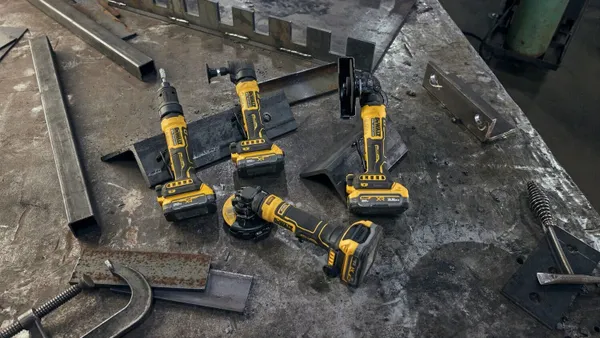Dive Brief:
- Tractor maker CNH Industrial on Friday reported a down third quarter mired by tariff impacts and slow agricultural demand in North America.
- The Netherlands-based manufacturer saw revenue decline 5.5% to $4.4 billion compared to the same period last year, driven by decreased shipments as dealers continue to work through their elevated inventories. Meanwhile, increased tariffs, higher costs and lower sales weighed on Q3 net income, which fell 78% year over year to $67 million.
- CEO Gerrit Marx said on an investor call that CNH is currently “absorbing” the tariffs' impact but expects to see its cost mitigation, restructuring and pricing efforts materialize next year. The company said it plans to close its Burlington, Iowa, plant by Q2 2026 due to declining demand for its backhoe loaders, affecting 200 workers.
Dive Insight:
Despite increased costs and soft demand for its heavy-duty agricultural and construction vehicles, CNH announced a pledge to invest $5 billion over the next five years into U.S. manufacturing and research and development facilities.
“We use all these shifts, changes and drags on global framework conditions as an opportunity to invest our resources in building a better and higher-performing CNH during these slow quarters,” Marx said.
Tariffs began to have a larger impact on the tractor maker in Q3 following a period of delays in cost increases, Marx said. CNH also navigated a weak North American retail market as agricultural sales fell 29% YoY for the region, he said.
South America also saw demand decline amid downward pricing pressures, although agriculture sales increased 16% in the Europe, Middle East and Africa regions, Marx added.
“While the geographic mix shift has a negative effect on our margins, it is encouraging to see some bright spots,” he said.
Accounting for expanded Section 232 steel and aluminum tariffs and lower China tariffs, CNH revised its estimated tariff exposure.
CFO James Nickolas said the full-year impact will be around $100 million for its agriculture segment and $40 million for its construction segment. CNH plans to fully offset the tariff impact “over the long run” by leveraging its global suppliers and manufacturing footprint, Nickolas said.
“Ultimately, we will pass through the remaining incremental costs through our pricing,” he added. “Our 2030 margin targets will not be jeopardized by the tariffs.”














